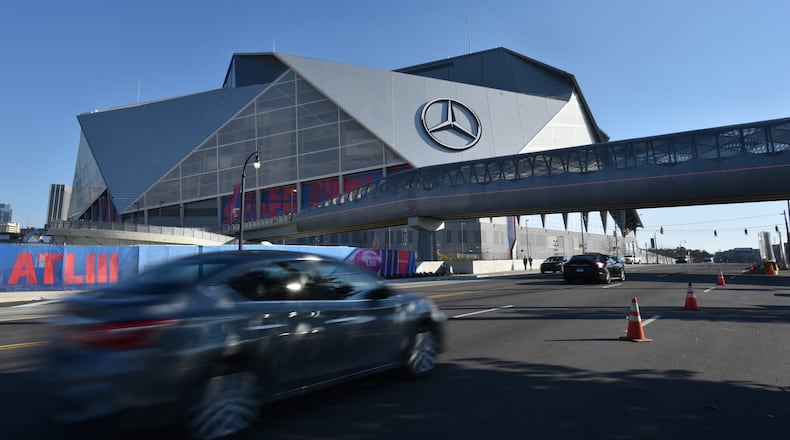An audit of the controversial Northside Drive Pedestrian Bridge that links the Vine City MARTA Station to Mercedes-Benz Stadium revealed significant inaccuracies in the city of Atlanta’s Open Checkbook — the online portal that allows the public to view city expenses.
The cost of the bridge was roughly $23.2 million, but at one point the city’s Open Checkbook reflected figures as high as $33.6 million because the city’s accounting system included duplicate portions of invoices from the construction company, according to the audit.
The city has since corrected the numbers on the portal.
Mayor Keisha Lance Bottoms unveiled the Open Checkbook shortly after taking office in 2018 under mounting pressure of a federal corruption investigation at City Hall and a state inquiry into criminal violations of the Georgia Open Records Act. At the time, Bottoms said the portal represented her administration’s commitment to transparency, but also warned might some initial kinks.
The audit was released Friday and also found that the city’s Department of Public Works provided only verbal approval to roughly $320,000 in design and build costs for improvements to the MARTA station’s parking lot. The contract for the bridge required written approval.
The bridge created tension between the community and City Hall from the moment its plans became known.
In July 2016, when former Mayor Kasim Reed requested $12.8 million from City Council to construct the bridge, he told the council the bridge had nothing to do with the stadium and that the costs would not increase.
Reed said that plans for the bridge arose out of requests from surrounding communities.
An Atlanta Journal-Constitution investigation later revealed that just weeks after asking for the money, Reed and Public Works Commissioner Richard Mendoza put their signatures on a contract for bridge construction that included a budget of $22.3 million.
Some community leaders told the AJC that they never requested the bridge. The Reed administration’s solicitation for project bids and and an impact study both mention it in relation to the stadium — not surrounding neighborhoods.
Shortly after Bottoms took office in 2018, her deputy chief of staff Katrina Taylor-Parks — a holdover from the Reed administration — asked the council to quickly approve the additional $12.3 million needed to complete the project so it would be ready in time for last year's Super Bowl, yet another indication that the bridge had always been intended to benefit the stadium.
Taylor-Parks is serving a 21-month federal prison sentence after pleading guilty in 2018 to bribery charges unrelated to the bridge.
Days before the 2019 Super Bowl, the AJC reported that the cost of the project appeared to have risen nearly $4 million above what the council had authorized based on figures in Open Checkbook. And although construction had finished, the bridge wouldn't be open to the public until after the game due to security concerns.
A city spokesman on Friday said that the bridge will be open to the public during the NCAA’s Final Four basketball tournament.
About the Author
Keep Reading
The Latest
Featured



